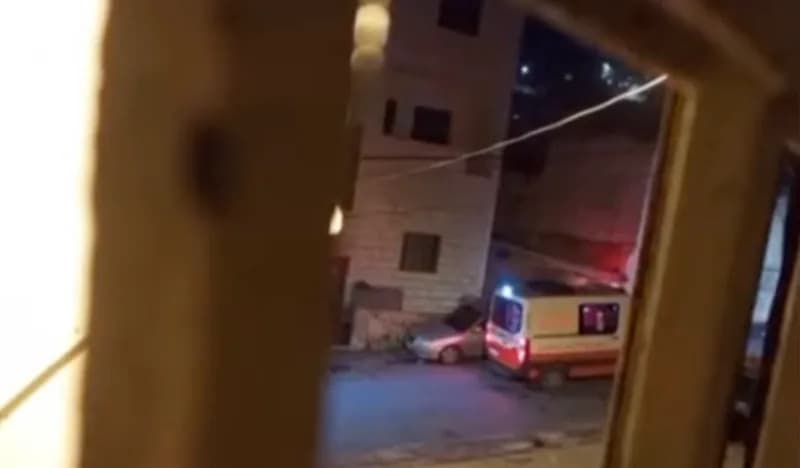Overview: Palestinian olive groves across the West Bank are suffering a wave of settler violence and military access restrictions that have destroyed trees, ransacked homes and prevented families from harvesting. U.N. agencies report a 13% rise in settler attacks in H1 2025 (757 incidents), at least 259 attacks on olive pickers since the harvest began, and more than 4,000 trees vandalized. Victims and rights groups say weak enforcement and expanding settlements are accelerating dispossession, while farmers vow to stay on their ancestral land.
Olive Harvest Under Siege: Settler Violence and Access Restrictions Devastate West Bank Groves

Olive harvest under siege
Umm Shukry walks the rows of olive trees she has tended for decades, inspecting each trunk and limb as she always has. This year is different: almost every tree shows damage, its branches dry and brittle. The 72-year-old pauses at each shoot with a heavy heart, unable to hide her grief.
“I am suffocated. I am suffocated from seeing my hard work turn out like this,”
For roughly two years, the family has been barred from accessing their land by a combination of settler attacks and Israeli military restrictions. Their plot in the Jordan Valley sits opposite an illegal outpost; settlers there, relatives say, assaulted and threatened family members until they fled in fear.
While the family was driven off, settlers reportedly released cattle into the groves and vandalized the fields. On returning, Umm Shukry’s son, Shukry Shehadeh, found his home ransacked, solar panels stolen, and water tanks and irrigation pipes destroyed — and no olives to harvest.
“They forced us to leave, and then they used extreme violence to destroy our olives, our home, our belongings. I am struggling to comprehend this shock,” Shehadeh said.
Rising violence and widespread damage
Rights groups and U.N. agencies report a sharp rise in settler attacks across the West Bank. The U.N. human rights office (OHCHR) recorded 757 settler attacks causing injuries or property damage in the first half of 2025 — a 13% increase from the same period last year. The Palestinian Authority’s Colonization and Wall Resistance Commission (CWRC) documented at least 259 attacks on olive pickers since the harvest began, and the U.N. Office for the Coordination of Humanitarian Affairs (OCHA) reports that more than 4,000 trees and saplings were vandalized this season.
Many incidents have been widely documented on video, showing confrontations in which Palestinians and solidarity activists were beaten. Dozens of clips circulating online show masked settlers carrying clubs, sticks and sometimes firearms, with footage that at times appears to show settlers acting with soldiers nearby.
Responses and accountability
The U.N. has urged Israel, as the occupying power, to prevent further attacks. Tom Fletcher, the U.N. Humanitarian Relief Chief, warned: “Palestinians must be protected. Impunity cannot prevail. Perpetrators must be held accountable.”
The Israel Defense Forces (IDF) told reporters that incidents inconsistent with IDF values would be investigated and addressed disciplinarily. In one widely circulated clip from Sinjil, soldiers were filmed taking olives after declaring the area a military zone and expelling Palestinian harvesters; the IDF said it would examine the episode.
Palestinians and many activists complain they have little avenue for justice because they see the military as facilitating settlers. Activists describe a two-tier system in the occupied West Bank: Palestinians live under military law while Israeli settlers fall under Israeli civilian law.
Protection efforts and continued attacks
Families have repeatedly tried to return to their groves, sometimes accompanied by Israeli and international volunteers from groups such as Rabbis for Human Rights (RHR). While these protective presences can deter violence, they do not guarantee safety. In recent weeks, activists and farmers in several West Bank towns reported assaults, detentions and expulsions from land declared closed military zones.
RHR and other groups say volunteers have been injured while accompanying farmers; in one reported incident a soldier allegedly fired shots in the direction of activists and farmers. The IDF said it restricts access to certain areas to "prevent friction" but also affirmed a condemnation of all violence.
Economic and cultural toll
The olive tree is both a cultural symbol and an economic lifeline for many Palestinian families. Ajith Sunghay, head of OHCHR’s office in the Occupied Palestinian Territory, described the olive harvest as "the economic backbone of rural Palestinian communities," with as many as 100,000 families dependent on the crop.
Shehadeh estimates that being barred from his groves for two years cost him nearly $25,000 in lost income. Activists and observers warn that rising settler violence, together with settlement expansion and stricter movement controls, is accelerating the dispossession of Palestinian agricultural land.
Personal accounts: fear, resilience, defiance
Personal stories underscore the human cost. On Oct. 25, Ahmad Shakarna said soldiers detained his mother-in-law while she was picking olives near Nahalin. He rushed to assist her and was, he says, beaten by a settler while soldiers restrained him; a widely shared video shows a soldier striking him with the butt of a rifle. Shakarna later received treatment for a mild concussion.
Despite fear and repeated losses, many farmers vow to remain on their land. “The olive tree existed before the occupation,” Shakarna said. “It is valuable and dear to us… we will not abandon it.”
Back in the Jordan Valley, Umm Shukry sits beneath a wounded tree and repeats her refusal to leave. “Ten years of hard work. Ten years of me spending time on this land, refusing to leave. But this is where I want to be. I will remain here underneath my olives. I won’t leave.”
Sources: interviews with affected families and activists, reports by OHCHR, OCHA and the Palestinian Authority’s Colonization and Wall Resistance Commission (CWRC), and statements from the Israel Defense Forces.
Help us improve.




























